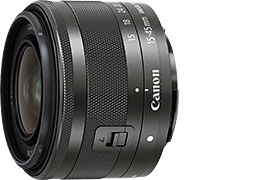Sometimes, all you want is to create a simple, elegant shot that showcases a product. Here are two easy-to-recreate looks that you can use to photograph cakes, pastries and flowers, using just natural light. (Photos by: Takeshi Akaogi, Edited by: Etica)

Cake and flower photography 101
When photographing subjects such as cakes and flowers, the key is to observe the item closely to determine the angle that presents the subject in its best light. The direction and intensity of the lighting is also very important.
Here are two looks you can use to photograph your confectionery/mini flower arrangement, each broken down into 4 simple aspects:
1. Intended look
2. Styling
3. Camera and lenses required
4. Shooting location & settings
Look #1: Bright and natural

EOS M10/ EF-M22mm f/2 STM/ FL: 22mm (35.2mm equivalent)/ Aperture-priority AE (f/2.8, 1/80 sec)/ ISO 100/ WB: Auto

EOS M10/ EF-M22mm f/2 STM/ FL: 22mm (35.2mm equivalent)/ Aperture-priority AE (f/2.8, 1/60 sec)/ ISO 125/ WB: Auto
1. Intended look: Bright and natural
2. Styling: Choose light, neutral colour tones for the plate and background cloth
3. Camera & lens:
Camera: Anything. Entry cameras like the EOS M200 or EOS 200D II will do the job, too!
Lens: Something with a wide maximum aperture so that you can create creamy background bokeh.
Try:
- EF-M22mm f/2.0 STM (for EOS M mirrorless cameras only)
- EF-S24mm f/2.8 STM
- EF50mm f/1.8 STM
4. Shooting location & settings:
- Keep the background simple.
- Shoot next to a window.

To ensure a clean, seamless look, iron the cloth that forms the background of your photo so that there are no visible creases. Pull all four sides taut and fasten them down, using tape if necessary.
Lighting: If you use side lighting, such as from a window, it will cause the subject to cast a shadow, which is great for making it look three-dimensional and natural. Not only so, the use of gentle, natural lighting also brings out the colours of your subject in a lovely manner.
Tip: If the natural light from your window is too strong, you can diffuse it with lace curtains or blinds.

A: Diffused, soft-looking natural light from the window.
Shooting angle: From a slight angle above the subject, ensuring a good view of the entire subject.
Focal length: 22mm (35mm-film equivalent: approx. 35.2mm)
Aperture setting: f/2.8 ( Enough depth-of-field to capture the details of the subject, but also creates a creamy background bokeh for a softer ambience )
Look #2: Toned-down elegance

EOS M10/ EF-M15-45mm f/3.5-6.3 IS STM/ FL: 35mm (56mm equivalent)/ Aperture-priority AE (f/8.0, 1/60 sec)/ ISO 640/ WB: Auto

EOS M10/ EF-M15-45mm f/3.5-6.3 IS STM/ FL: 35mm (56mm equivalent)/ Aperture-priority AE (f/5.6, 1/60 sec)/ ISO 160/ WB: Auto
1. Intended look: Muted and elegant
2. Styling: Choose earthy, muted colours for the plate and background cloth
3. Camera & lens
Camera: As with Look #1, any camera will do.
Lens: Any standard zoom lens. Your kit lens will work too!
4. Shooting location & settings:

Shooting with a white reflector board
Lighting: Arrange the shooting layout so that you will be shooting in backlighting. This will make the outlines of the subject “pop”. The backlighting will cause the subject to cast a shadow towards you, so to ensure that details are not lost in shadow, use a white reflector board to reflect the light back. You may also use a lace curtain or blinds to diffuse sunlight from the windows and create a softer-looking effect.

A: Soft sunlight from the windows (backlight)
B: Use a white reflector board to reflect light onto the subject from a diagonal angle, so that more details can be captured.
Angle: From a slight angle above the subject, ensuring a good view of the entire subject.
Focal length: 35mm (35mm-film equivalent: approx. 56mm)
Aperture setting: f/5.6 (Keeps the entire subject in focus and captures details well)
Tip: Use 1:1 aspect ratio for more impact
The 1:1 aspect ratio is great for product photos as it does not include too much unnecessary background. Change the aspect ratio you are shooting in, and you can compose square images directly without having to think too hard about how you are going to crop it to size later. That way, you can also share it to social media faster!
Here’s more about aspect ratios:
Camera FAQ #8: How Can I Compose Images to Make Full Use of Aspect Ratio?

Press the [SET] button, select [3:2] from the menu that appears, and then select [1:1].
For more ideas on product photography, check out:
Basic Techniques for Product Photography
Take Mouth-watering, Juicy-looking Pastry Pictures With These Light Control Techniques
How to Create a Sparkly Background with Bokeh Circles for Pretty Trinket Pictures
Need a fancier shot? We have tutorials for those too! See:
3 Composition & Styling Techniques for Food Photography
Coffeetography – Photographing Coffee for Instagram
Taking Dramatic Food Photos in Chiaroscuro Style
Receive the latest update on photography news, tips and tricks.
Be part of the SNAPSHOT Community.
Sign Up Now!About the Author
Etica Co., Ltd. not only run photography classes under the name “Tanoshii Camera School", but also edit publications and plan media and events related to cameras and photography, with a focus on themes related to child care, animals and food. Their motto is "Photos make people happy!" and they are engaged in communicating the charm of cameras and photography.
As a photographer, Akaogi works mainly for magazines and writes books introducing photography and practical tips. He also teaches at photography workshops.




































.jpg)


